By Corinna Kloth

A Compilation of Newly Released Indie Reads.
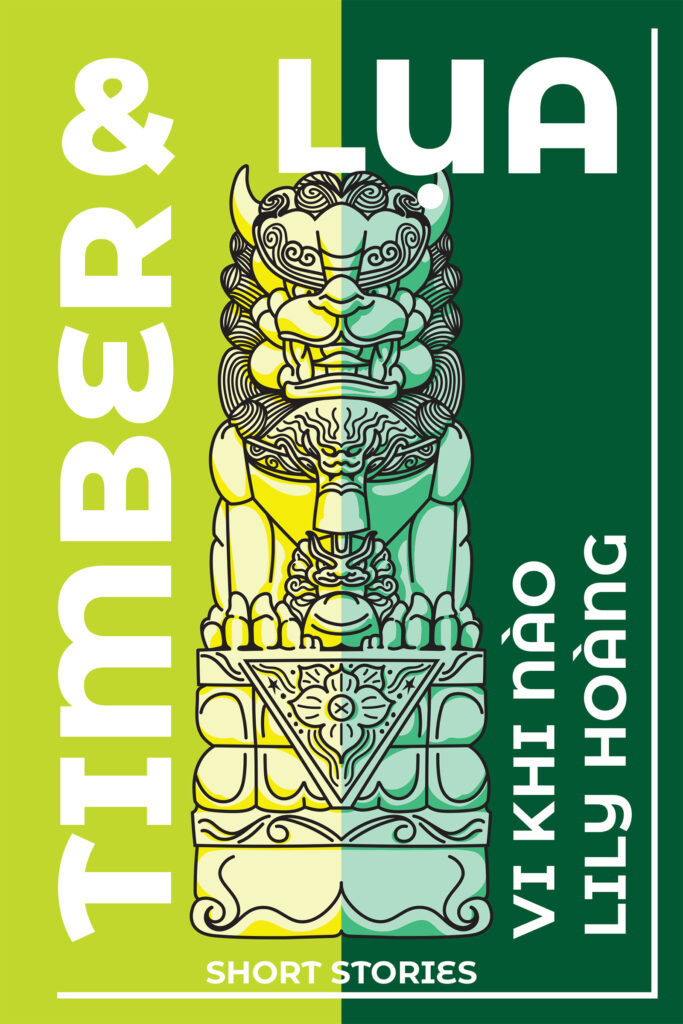
1. Timber & Lua
Timber & Lụa exists in duality as both original, innovative collaboration between Lily Hoàng and Vi Khi Nào and their primarily self-translations of said work. Comprised of ten short experimental stories, Timber & Lụa is written in three different languages: Vietlish, Vietnamese, and English. Similar to Samuel Beckett and Vladimir Nabokov, who translated their own work (from English to French and from Russian to English, respectively), Hoàng and Nào extend that makeshift “tradition” by hybridizing their translation to graft the genetic material of one language (English) and the genetic material of another language (Vietnamese) to produce a new literary diasporic genre. From love story to the speculative to fairy tale, these ten stories accentuate Hoàng and Nào’s dynamic, eccentric range. Timber & Lụa coincides with the fiftieth anniversary of the Fall of Saigon (1975–2025), as a diasporic literary contribution and commemorative celebration.
Vi Khi Nao & Lily Hoang
Vi Khi Nào is the author of many books and is known for her work spanning poetry, fiction, theatre, film, and interdisciplinary collaborations, most recently The Italy Letters (Melville House) and The Six Tones of Water, coauthored with Sun Yung Shin (Ricochet). Lily Hoang is the author of five books, including A Bestiary (finalist for a PEN USA Nonfiction Book Award) and Changing (recipient of a PEN Open Books Award).
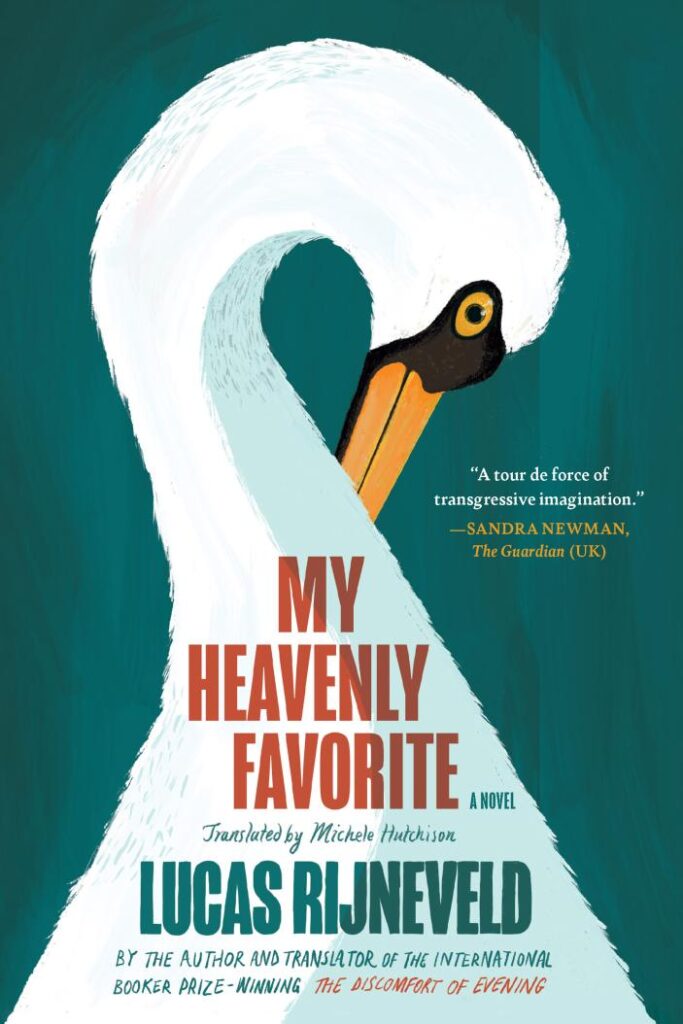
2. My Heavenly Favorite
A confession, a lament, a mad gush of grief and obsession, My Heavenly Favorite is the remarkable and chilling successor to Lucas Rijneveld’s international sensation, The Discomfort of Evening. It tells the story of a veterinarian who visits a farm in the Dutch countryside where he becomes enraptured by his “Favorite”—the farmer’s daughter. She hovers on the precipice of adolescence, and longs to have a boy’s body. The veterinarian seems to be a tantalizing possible path out from the constrictions of her conservative rural life.
Narrated after the veterinarian has been punished for his crimes, Rijneveld’s audacious, profane novel is powered by the paradoxical beauty of its prose, which holds the reader fast to the page. Rijneveld refracts the contours of the Lolita story with a kind of perverse glee, taking the reader into otherwise unimaginable spaces. An unflinching depiction of abjection and a pointed excavation of taboos and social norms, My Heavenly Favorite “confirms Rijneveld’s singular, deeply discomforting talent” (Financial Times UK).
Lucas Rijneveld, Translated by Michele Hutchison
Lucas Rijneveld grew up in a Reformed farming family in North Brabant before moving to Utrecht. He is the author of The Discomfort of Evening, which was the first Dutch book to win the International Booker Prize, as well as three poetry collections.
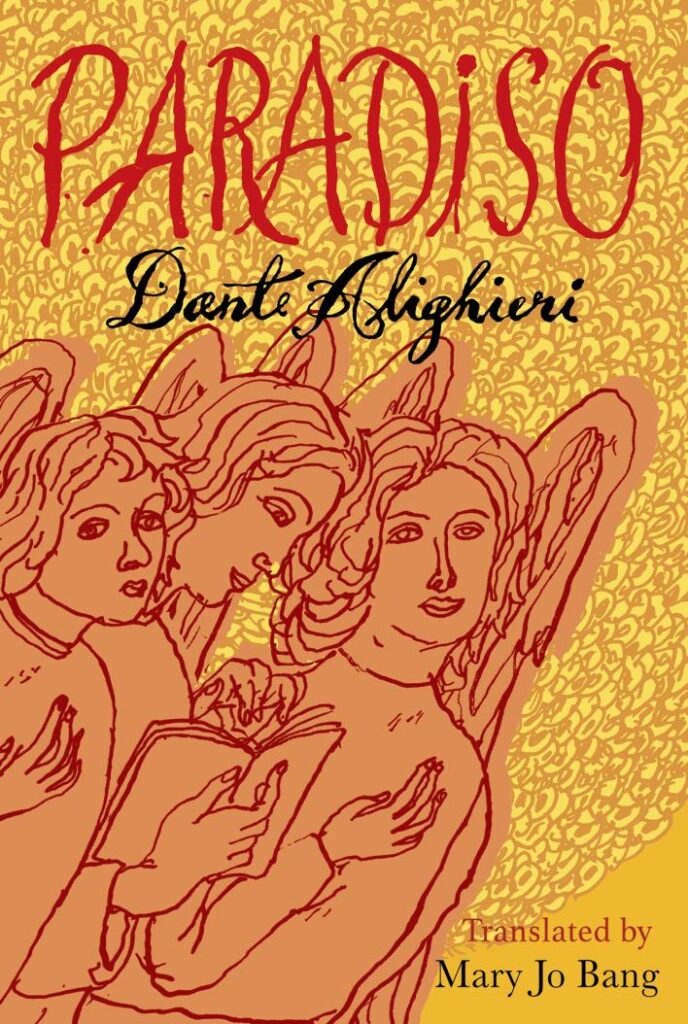
3. Paradiso
Mary Jo Bang’s translation of Paradiso completes her groundbreaking new version of Dante’s masterpiece, begun with Inferno and continued with Purgatorio. In Paradiso, Dante has been purified by his climb up the seven terraces of Mount Purgatory, and now, led by the luminous Beatrice, he begins his ascent through the nine celestial spheres of heaven toward the Empyrean, the mind of God. Along the way, we meet the souls of the blessed—those at various proximities to God, but all existing within the bliss of heaven’s perfect order. Philosophically rich, spiritually resonant, Paradiso is a reckoning with justice and morality from a time of ethical questioning and political division much like our own.
Dante Alighieri, Translated by Mary Jo Bang
Mary Jo Bang has published eight poetry collections, including A Doll for Throwing and Elegy, winner of the National Book Critics Circle Award, and new translations of Dante’s Inferno and Purgatorio. She teaches at Washington University in Saint Louis.
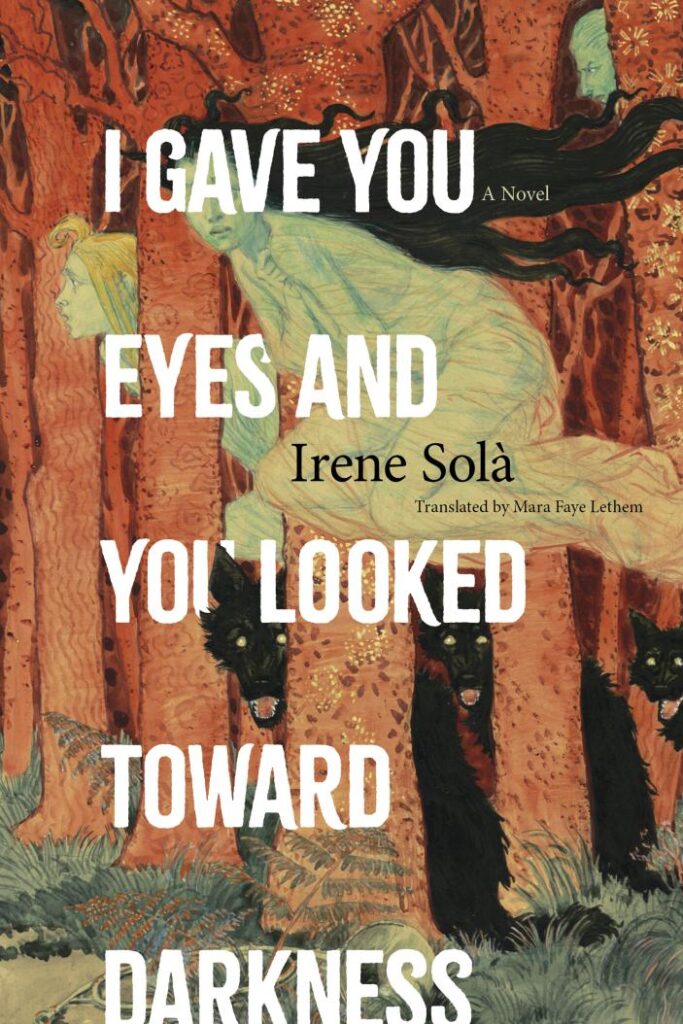
4. I Gave You Eyes And You Looked Towards Darkness
Dawn is breaking over the Guilleries, a rugged mountain range in Catalonia frequented by wolf hunters, brigands, deserters, race-car drivers, ghosts, and demons. In a remote farmhouse called Mas Clavell, an impossibly old woman lies on her deathbed. Family and caretakers drift in and out. Meanwhile, all the women who have lived and died in that house are waiting for her to join them. They are preparing to throw her a party. As day turns to night, four hundred years’ worth of stories unspool, and the house reverberates with raucous laughter, pungent feasts, and piercing cries of pleasure and pain. It all begins with Joana, Mas Clavell’s matriarch, who once longed for a husband—“a full man,” perhaps even “an heir with a patch of land and a roof over his head.” She summoned the devil to fulfill her wish and struck a deal: a man in exchange for her soul. But when, on her wedding day, Joana discovered that her husband was missing a toe (eaten by wolves), she exploited a loophole in her agreement, heedless of what consequences might follow.
Irene Sola, Translated by Mara Faye Lethem
Irene Solà is a writer and visual artist. She is the author of the novels The Dams, When I Sing, Mountains Dance, and I Gave You Eyes and You Looked Toward Darkness, and Beast, a poetry collection.
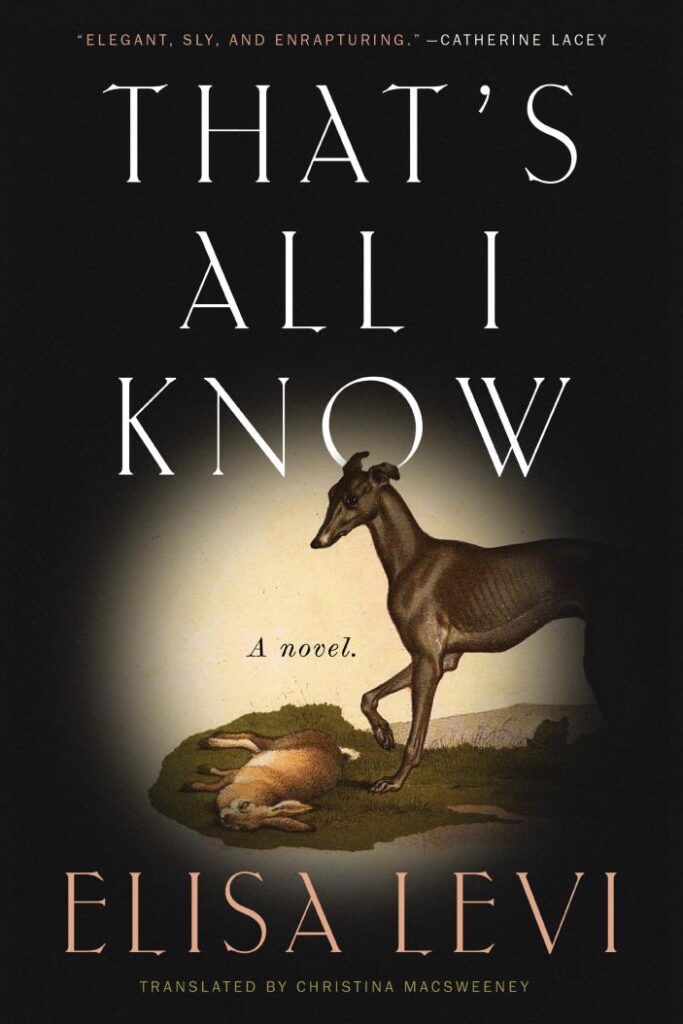
5. That’s All I Know
Nineteen-year-old Little Lea lives in a rural town where life ends at the edge of the forest.
When a stranger loses his dog on the first day after the end of the world, Little Lea warns him not to follow it into the forest, that people who enter never come out. Over a shared joint, she tells him about the burning in her gut, winding a tale of loss, desire, and conspiracies.
Little Lea sees the world through backcountry eyes that distrust the outsiders who come but who also get to leave. When she isn’t working at her mother’s grocery store, she cares for her empty-headed younger sister, Nora, who only cries when she’s in pain. Meanwhile, her friend Catalina does nothing but cry. Little Lea wants Javier to love her, and she doesn’t want Marco, who leaves weed and his best potatoes on her doorstep. As the town prepares for their end-of-the-world festival, she faces her intensifying desire to leave, that burning that unsettles her life—she wants to be useful somewhere else, even if it means being unloved, unwanted, unable to return. That’s all she knows.disillusionment, and a clear-eyed examination of the passions that rule our lives and make history.
Elisa Levi, Translated by Christina Macsweeney
Elisa Levi is the author of a poetry collection and two novels. She specialized in playwriting at the Royal Academy of Dramatic Art. Her short stories have been anthologized, and she has translated several books from English to Spanish.
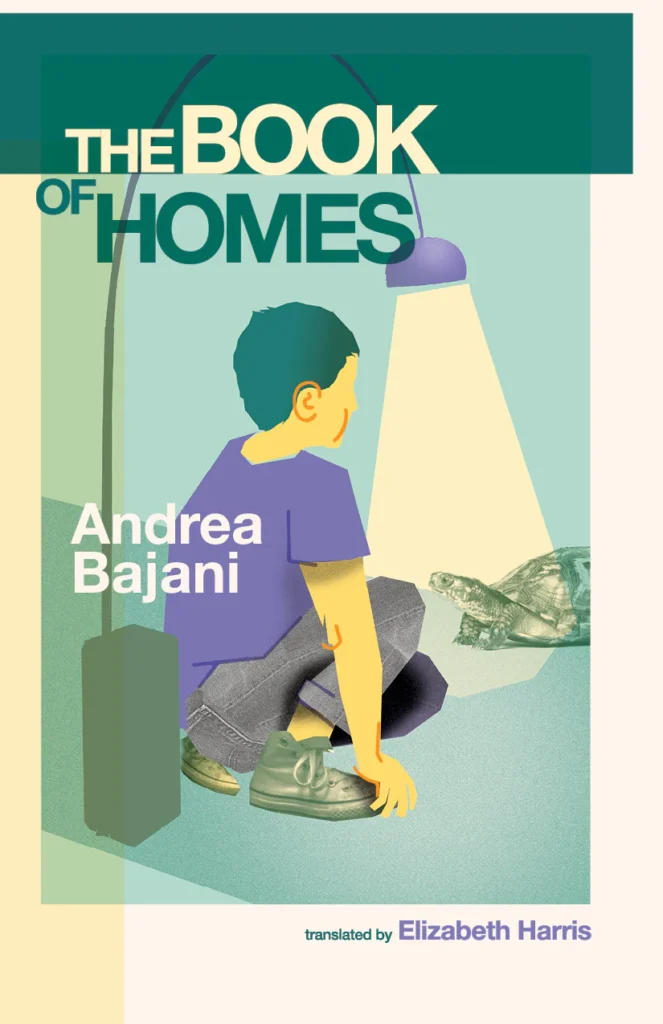
6. The Book of Homes
The Book of Homes is the story of a man and his friendships, his upbringing, his discovery of sex and poetry, his detachment from a self-destructive family, and his liberation from the furniture that has followed him through 20 years of moves. His story jumps from home to home, upstairs to downstairs, each home a piece of the puzzle of his life. In its extraordinary, ambitious architecture, this novel brings to light all the stories hidden in the silence of domestic spaces.
Andrea Bajani, Translated by Elizabeth Harris
Andrea Bajani was born in Rome in 1975. He is the author of many award-winning novels, including, in English translation, If You Kept A Record of Sins (Archipelago, 2021) and Every Promise (Maclehose Press, 2013). He is currently a writer in residence at Rice University in Houston, Texas.
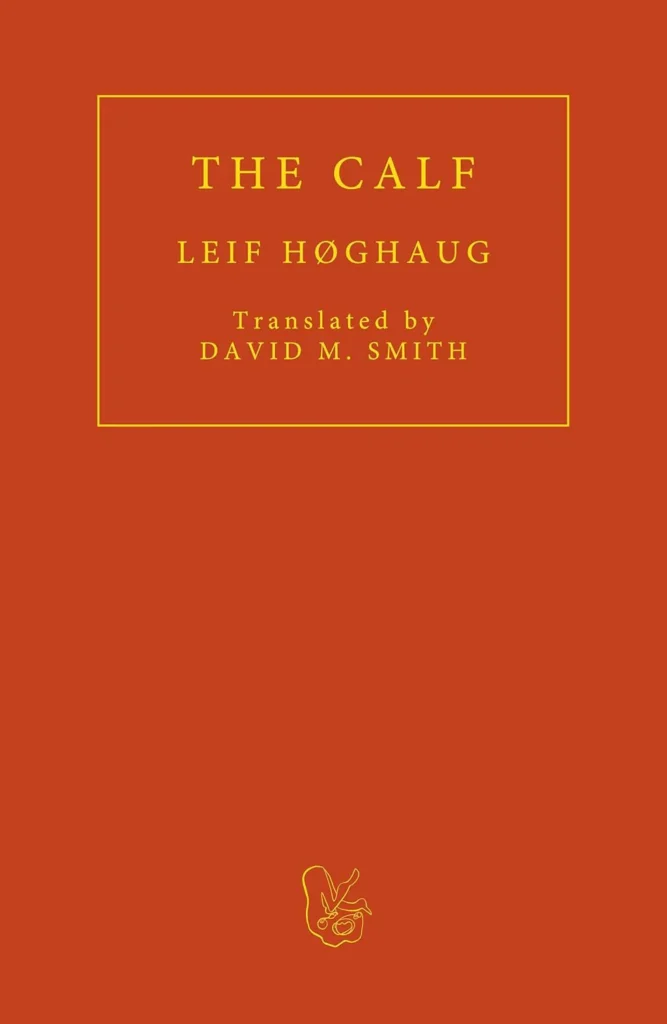
7. The Calf
On violence, crime, guilt and atonement. We meet our narrator in an underground office where he sharpens pencils, shreds paper, makes coffee for the other employees and thinks over and over about a late night that he has been trying to forget for a long time. In between the meaningless work, he manages to scratch down some names and phrases, and conjures up a dream from 1980s Hadeland. In this saga, Hadeland is a shadow home where spooks, ghosts, angels and robot-like creatures are just as natural as animals and flesh and blood humans. But what happened that late summer night? What is it that the narrator has tried to forget? And who is this Calf, who was “killed to death”? Our narrator takes readers in circles through different events, times and places; a whirlwind in which the calf and other characters are like prisoners in a tornado from Dante’s Inferno.
Leif Hoghuag, Translated by David M. Smith
Giulio Mozzi has published twenty-six books—as fiction writer, poet, and editor. He is primarily known for his story collections, especially This Is the Garden, which won the Premio Mondello. “The Apprentice” (included in this collection) appears in an anthology of the top Italian stories of the twentieth century. He has even created an imaginary artist, Carlo Dalcielo, whose work has appeared in public exhibitions and books, like Dalkey Archive Press’s Best European Fiction 2010.
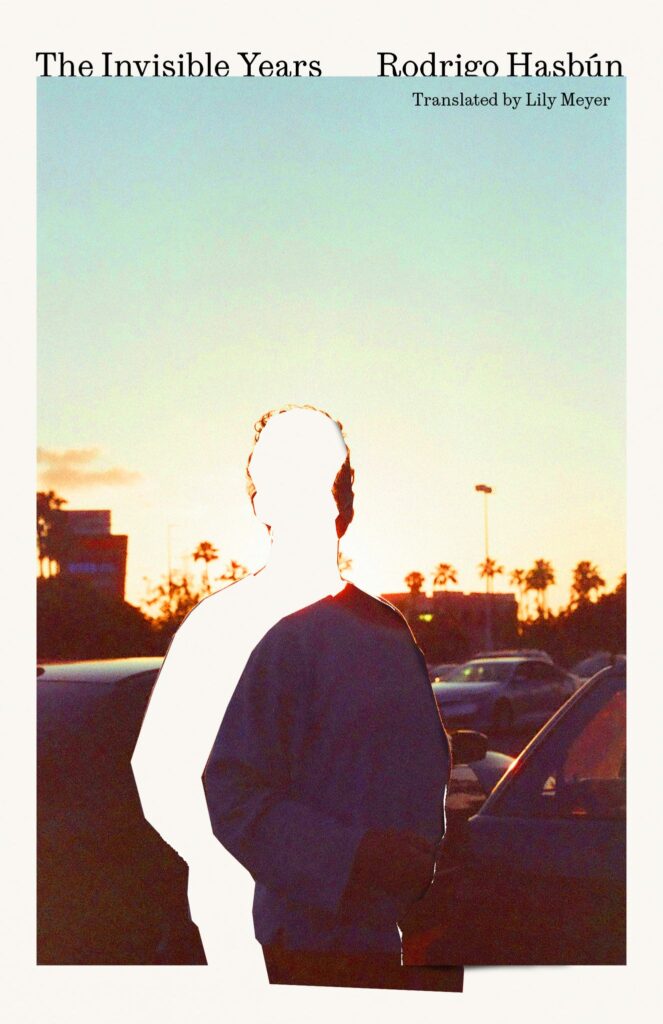
8. The Invisible Years
Andrea and Julián haven’t seen one another in twenty-one years—not since that tragic, fateful night their senior year of high school that marked their group of friends forever. A shocking phone call brings the two together again in Houston, where they begin to unravel the truth of that year, picking open long scabbed-over wounds from their upper-class adolescence in 1990s Bolivia and the scandal that ripped them apart.
A writer unhappy in his career and his marriage, Julián has been novelizing the past for his next book, trying to make meaning out of the events that changed the course of their lives forever. “I’d thought that writing about that time would free me, relieve the burden of the invisible years,” he writes, “but often it seems that it’s done the reverse.” Juxtaposing the naïve invincibility of adolescence with the grasping uncertainties of adulthood, The Invisible Years deftly weaves a coming-of-age tale that leaves the reader hanging on every word, even as they know how the cards fall in the end.
Rodrigo Hasbun, Translated by Lily Meyer
Rodrigo Hasbún is a Bolivian writer and screenwriter. He is the author of eight works of fiction and nonfiction, including the novel Affections (Simon & Schuster), which received an English PEN Award and has been translated into twelve languages. Named one of Granta’s Best Young Spanish-Language Novelists in 2010, Hasbún’s short stories have appeared in Granta, McSweeney’s, Zoetrope: All-Story, Words Without Borders, and elsewhere. He lives and works in Houston.
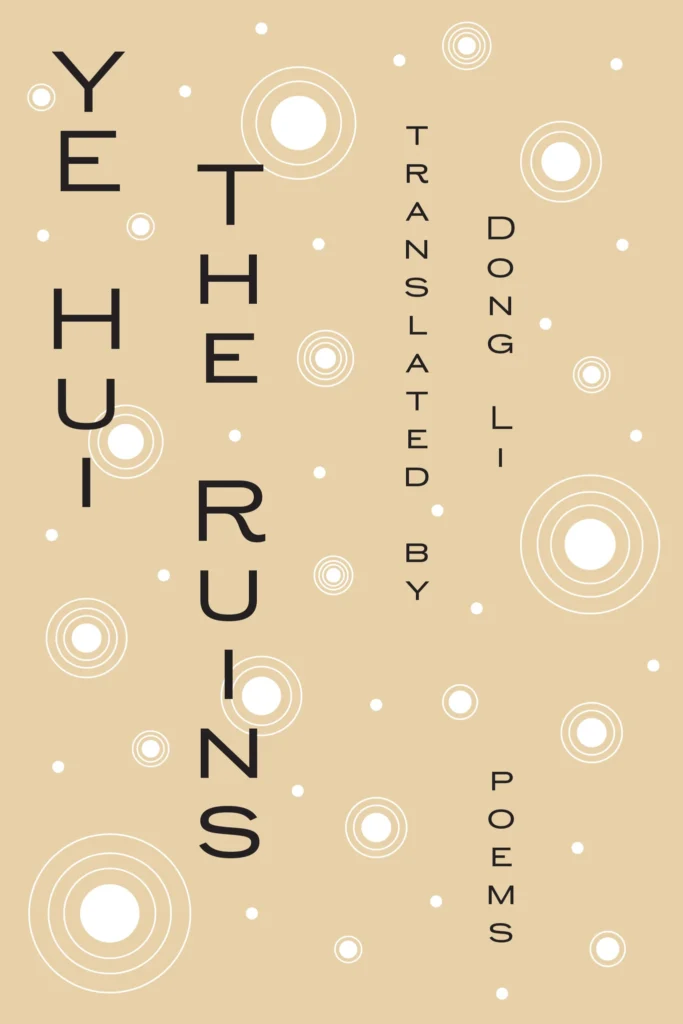
9. The Ruins
Here’s a witch poet walking backward into the future. There’s an architect dispelling illusions and inviting us into communal living. The poems collected in The Ruins rise from a primordial wisdom that resists the quarrels of the marketplace, that keeps company under a leaky authoritarian roof and rubs off its burn, that carves out its own impossible freedom. In Dong Li’s luminous translation of Ye’s first full-length collection, each poem braids myth and mystery, inviting the reader into a liminal space where “echoes of the ancient, the imagined, and the ‘now’ sound off each other” on the page (The Cincinnati Review).
Ye Hui, Translated by Dong Li
Ye Hui is an acclaimed Chinese metaphysical poet who lives in Nanjing. His poems in Dong Li’s English translation have appeared or are forthcoming in 128 Lit, The Arkansas International, Asymptote, Bennington Review, Blackbird, Cincinnati Review, Circumference, Copihue Poetry, Guernica, Kenyon Review, Lana Turner, Nashville Review, POETRY, Poetry Northwest, and Zocálo Public Square.
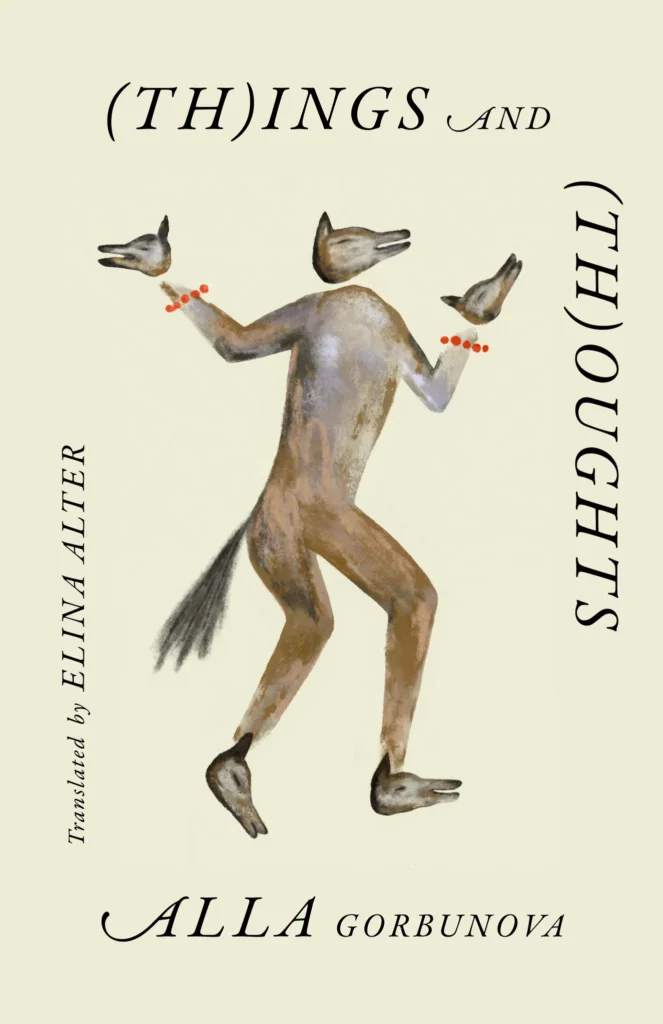
10. (Th)ings and (Th)oughts
From a rising star of Russian literature, a collection of short stories that straddles the line between delight and horror.
Twisting the art of the fairytale into something entirely her own, Alla Gorbunova’s (Th)ings and (Th)oughts is an endlessly inventive collection of thematically-linked short prose. Divided by subject—romance, philosophy, fate—the stories in this collection turn a magical lens to bitter realities.
Alla Gorbunova, Translated by Elina Alter
Alla Gorbunova was born in Leningrad in 1985 and studied philosophy at St. Petersburg State University. She is a poet and the author of several books of prose. Her book, It’s the End of the World, My Love, became Russia’s most discussed literary publication in 2020 and received The New Literature Prize 2020.
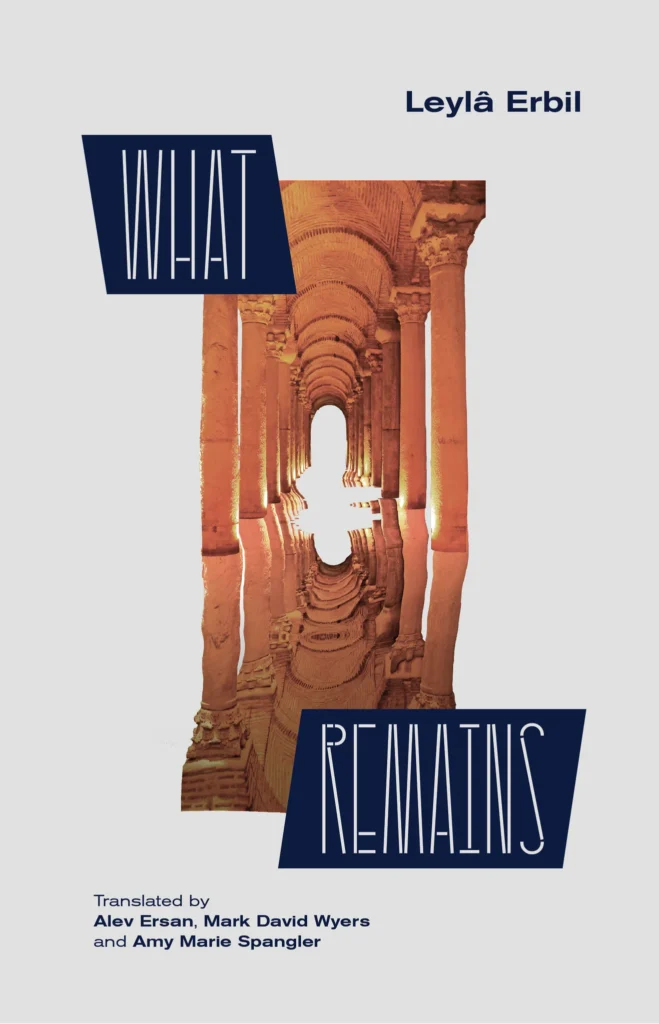
11. What Remains
An experimental collection of “proems” from poet and author Leylâ Erbil, the first Turkish woman to ever be nominated for the Nobel.
These poems recount the history and present of the Turkish state, from the Byzantine Empire through the twentieth-century Turkey of Erbil’s experience. Now available for the first time in translation, What Remains is a fearless, deeply felt collection from one of the most influential Turkish writers in recent history.
Leyla Erbil, Translated by Alev Ersan, Mark David Wyers, and Amy Marie Spangler
One of the most influential Turkish writers of the 20th century, Leylâ Erbil was an innovative literary stylist who tackled issues at the heart of what it means to be human, in mind and body. Erbil ventured where few writers dared to tread, turning her lens to the tides of social norms and the shaping of identities, focusing intently on emotional conflict, and plumbing the depths of history and psyche.
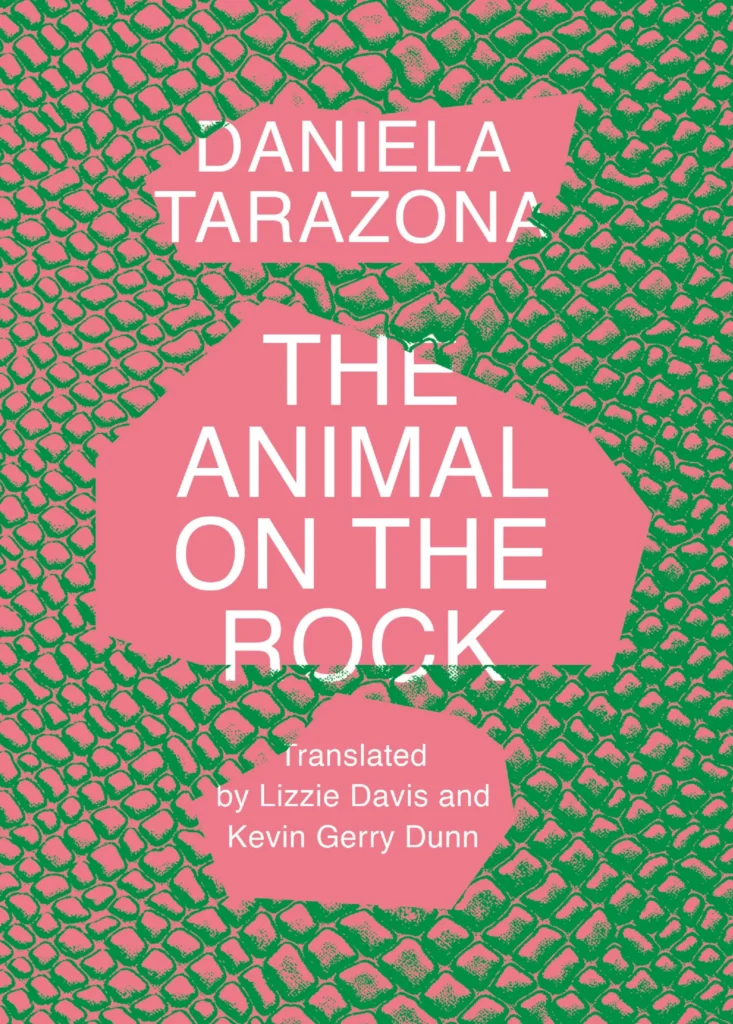
12. The Animal on the Rock
After the death of her mother, Irma decides to take a plane and hole up on a faraway beach. Through the course of her grief, the protagonist’s body, her instincts, and her perception, begin to experience a transformation as unexpected as it is natural. The skin over her joints become thick and scaly, her eyes take on a yellow gleam, and she spends more and more time bathing in the hot sun.
In these pages, Tarazona manages to address the perennial literary theme of metamorphosis, without relying on simple fantasy or didactic symbolism. More than a fable or a supernatural diversion, The Animal on the Rock is a profoundly biological and introspective novel with universal resonances.
Daniela Tarazona, Translated by Lizzie Davis and Kevin Gerry Dunn
Daniela Tarazona (Mexico City, 1975) is the author of Divided Island, winner of the prestigious Sor Juana Inés de la Cruz Prize and published by Deep Vellum in 2024. In 2012, she published the novel El beso de la liebre (Alfaguara), which was shortlisted for the Las Américas Prize in 2013. In 2020, the book Clarice Lispector: La mirada en el jardín (Lumen) was published, co-written by Tarazona and Nuria Mel. Her work has been translated into English and French. She has been a fellow of Mexico’s Young Artists program and is currently a member of the FONCA fund’s National Network of Artists.
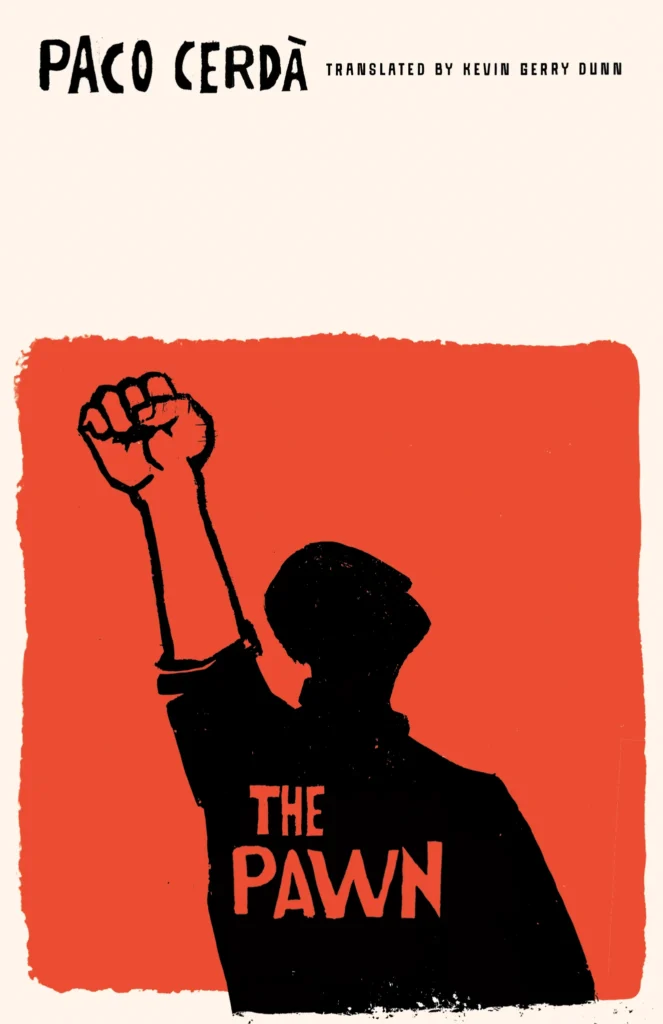
13. The Pawn
In this gripping historical saga, award-winning Spanish writer Paco Cerdà explores early Cold War anxieties through the lens of a famous chess match.
Stockholm, 1962. Spain’s first chess grandmaster, Arturito Pomar, faces off against eighteen-year-old American prodigy Bobby Fischer in a match that will become the stuff of legend, not so much for how it ends but for what it symbolizes. Shuttling back and forth across decades between the United States, Spain, the Soviet Union, and beyond, The Pawn tracks the careers of the two chess masters, expertly examining the geopolitical anxieties that pervaded the 1960s and went on to shape these men’s lives.propulsive, even more compelling.
Paco Cerda, Translated by Kevin Berry Dunn
Paco Cerdà is a journalist and writer. He is the author of multiple award-winning books. The Pawn is the first book of his to be translated into English.
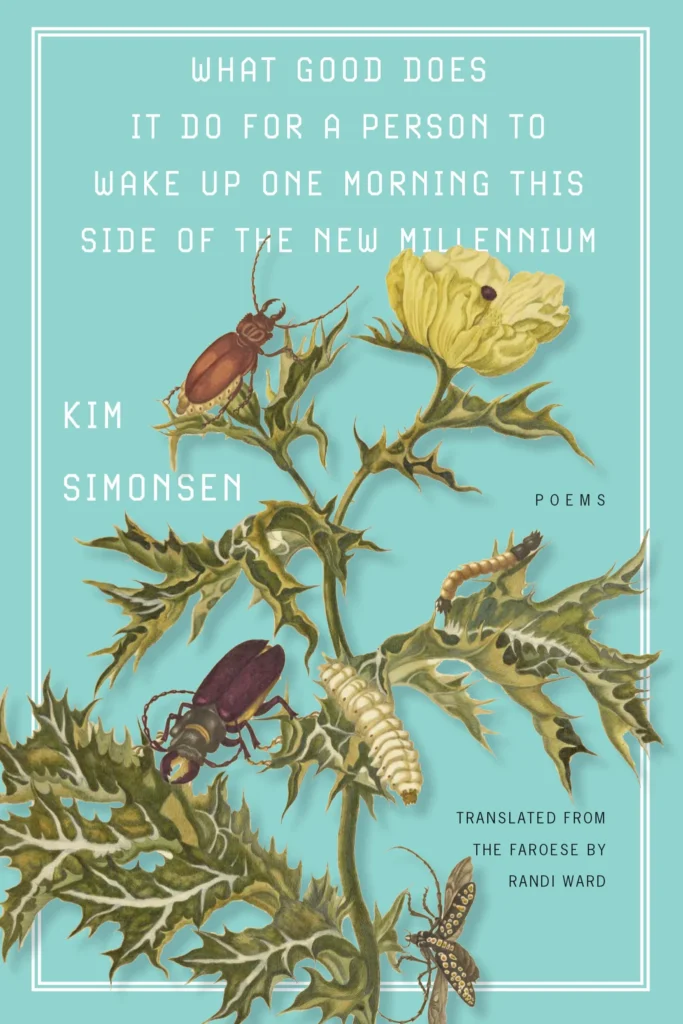
14. What Good Does It Do For A Person To Wake Up One Morning This Side Of The Millennium
The rhetorical title of this collection posits the crisis that is underway. Simonsen asks: as a species among species, all composed of the matter of the universe, how has our compulsion to classify everything hierarchically estranged us from ourselves, each other, and Earth’s ecosystems? Simonsen challenges our anthropocentric pursuit of knowledge, exploring humankind’s relationship with itself as an element of the natural world. What good does it do for a person to wake up one morning this side of the new millennium follows the struggles of its narrator as he reckons with intensifying estrangement from his fellow organisms, gradually turning to the greater kinship of matter to find continuity, connection, and solace.
Kim Simonsen, Translated by Randi Ward
Kim Simonsen is a Faroese writer and publisher. He is the author of seven books, as well as numerous essays and academic articles. In 2014, Simonsen won the Faroe Islands’ National Book Award for his poetry collection What good does it do for a person to wake up one morning this side of the new millennium. His newest poetry collection was nominated for the Nordic Council Literature Prize in 2024.
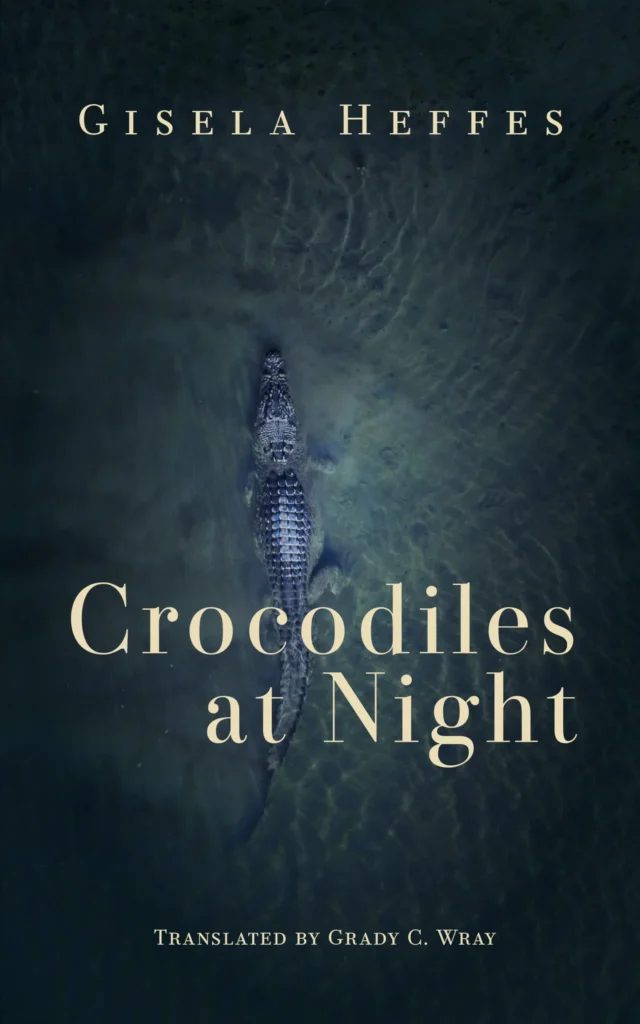
15. Crocodiles at Night
Although the outcome of Crocodiles at Night does not remain a surprise beyond the first paragraph, it expands outwards in philosophical, heartfelt reverberations true to Heffes’s style. Crocodiles at Night explores familial ties, memories and images of places that are no longer the same, the vagaries of the medical system, and social critique in this unfeigned, excruciating view of death and how it affects all who experience it.
Gisela Heffes
Gisela Heffes is a Professor of Latin American Literature and Culture at Johns Hopkins University as well as a writer, ecocritic, and public intellectual with a particular focus on literature, media, and the environment in Latin America. She is the author of several novels, including Ischia (Deep Vellum, 2023). She currently resides in Silver Spring, Maryland.

Continue Reading:
Article originally Published in the Fall 2025 Issue: Indie Fiction From Across the Globe.
